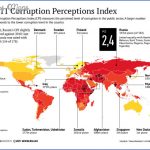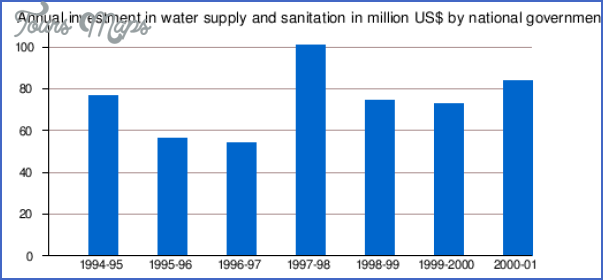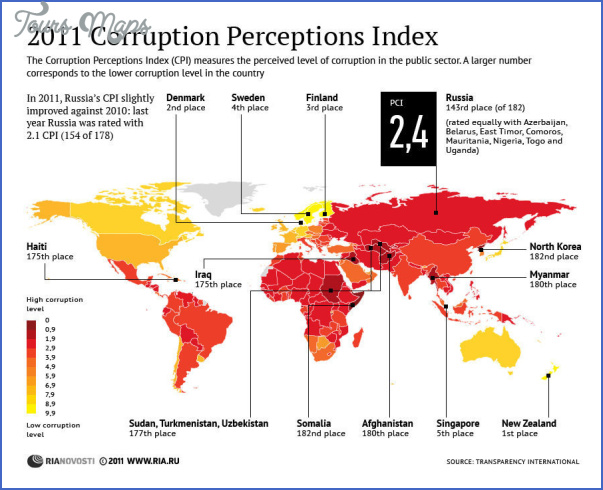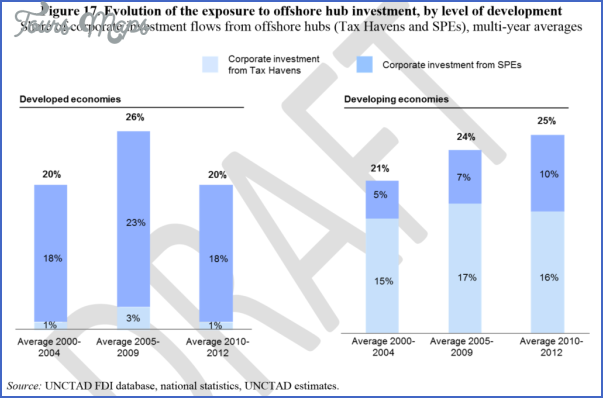Ironically some of the countries that desperately need visitor money get little because of their poverty. These include most of the Black African nations and most of Asia. Bangladesh’s per capita income is $115 per year. That of Haiti is $270 a year. By comparison, in
Per capita income can be misleading in that income may be unevenly distributed. Mexico, for example, has a per capita income exceeding $2,000, with a relatively few rich and the vast majority of people desperately poor. The president of Cameroon rides around in a gold-plated limousine. Some of the rich in India are very rich.
Those who enjoy visiting countries where almost no one is poor should visit most of Western Europe but especially the Scandinavian countries (Norway, Sweden, and Denmark), West Germany, and Switzerland.
Of course travel is related to its root word, travail. The act of traveling in itself can be highly stressful. Assorted diseases and parasites are out there, especially in the less developed countries, waiting to make life miserable if allowed into the body. Visitors are fair prey in a number of countries.
Entrance requirements can be draconian. Before arriving at the United Arab Emirates, travelers should drink any and all liquor they may be carrying. Visitors are subject to arrest if they attempt to import any alcoholic beverages.
As for illegal drugs, do not take any to Malaysia. The dealth penalty is mandatory if one is convicted of drug trafficking. By definition conviction follows if the quantity meets the minimum amount set by the government.8
During the past sixty years air travel has become one of the phenomena of our time. The Concorde travels at mach 2, twice the speed of sound. Traveling and distance has been compressed into hours; journeys that took weeks, even months, can be undertaken over a weekend. Millions of people can visit their families on another continent. Business travelers can schedule trans-Atlantic meetings without a second thought. Pleasure travelers can explore the Amazon or the Arctic. What of the future?
Even today only one in six hundred persons flies. What if that figure reaches two in six hundred or one hundred in six hundred? Will air travel become just another hassle in getting from point A to point B? In some places that has already occurred. Will it become very nice just to stay at home?
How will the air vehicle itself change? Ballistic travel (passenger rockets shot to follow a parabolic path into the upper atmosphere and then return, following a path, for example, from San Francisco to Sydney, Australia) is technically feasible. Planes carrying one thousand passengers are not far off, and others can be built to carry even more passengers.
Will international travel spread disease as well as cultures? The spread of the anopheles mosquito by air from Africa to Brazil has already occurred. Rapid transmittal of disease is a distinct danger.
Will world peace be furthered by international travel? There is no strong evidence that this has happened. The way an international traveler affects host people seems to be influenced by a number of factors, such as political and cultural differences, differences in affluence, educational level, the personalities of the individual travelers and of the individuals in the host nation.
International travel results in an array of benefits to some groups. To other groups international travel is a liability, accompanied by noise and overcrowding. The new Narita Airport forty miles outside of Tokyo, for example, maintains a security force of eighteen hundred men to safeguard the airport from the farmers and others of the region who see it as a menace to their way of life.
The effects the instant information revolution will have on international travel are a matter of speculation. When the home TV operates as a telephone, and a video disc player can be hooked into massive information and entertainment libraries, the urge to travel may be dampened or stimulated. Visualize a four- by six-foot screen in every living room linked to a vast entertainment and education system. Operating from a panel removed from a computer-controlled console, the operator will be able to call most places in the civilized world and speak to a person or group seen on the screen. Views of vacation destinations can be called up, the actual scene of say Champs d’Elysses in Paris or of Waikiki Beach.
Any one of hundreds of education programs can be called up from central video libraries. Stock travel marketing tapes can be displayed at will. Undoubtedly a catalog of films on various countries and vacation destinations will be available. Current travel costs, best air routing and flight schedules will be instantly displayed.
The individual will have a choice of actual travel or being an armchair adventurer. Will this kind of ready access to films and cassettes work to make for a more knowledgeable traveler, one who can more appreciate the destination? Will it stimulate travel or inhibit it?
The right to travel fits well with Thomas Jefferson’s rights to life, liberty and the pursuit of happiness. The pursuit of happiness is a universal good unfortunately denied the majority of world citizens today. As that right becomes available to millions because of greater affluence and political freedom the numbers involved in pleasure travel could be astounding. One thing is certain: international travel will continue to be one of this century’s most amazing forces for change.
END NOTES
1. Travel Industry World Yearblog-XWi, Somerset Waters, Child and Waters, N.Y.C. 1983.
2. The figures are for 1979 and appear in the Economic Review of World Tourism, World Tourism Organization, 1982 Edition, Madrid.
3. Reported in Chapter 4, The Psychology of Leisure Travel, Mayo and Jarvis, CBI Publishing Co., Boston, 1981.
4. J.R.L. Anderson, The Ulysses Factor (New York: Harcourt Brace Jovanovich, 1970).
5. World Almanac, Rand McNally, 1982.
6. Ibid.
7. This material used courtesy of the editors of International Living, Baltimore, Md.
8. A World Status Map covering danger areas; advisories from the U.S. Department of State; current passport, visa, and vaccination requirements; and Center for Disease Control reports is published monthly by E.M. Electronics Co., Box 2533, Fairfax, VA 22031.
AVOIDANCE OF POOR COUNTRIES Photo Gallery
Maybe You Like Them Too
- Explore Deloraine, Canada with this detailed map
- Explore Daund, India with this Detailed Map
- Bakel, Netherlands A Visual Tour of the Town
- Explore Apapa, Nigeria with this Detailed Map
- Explore Angleton, Texas with this detailed map








